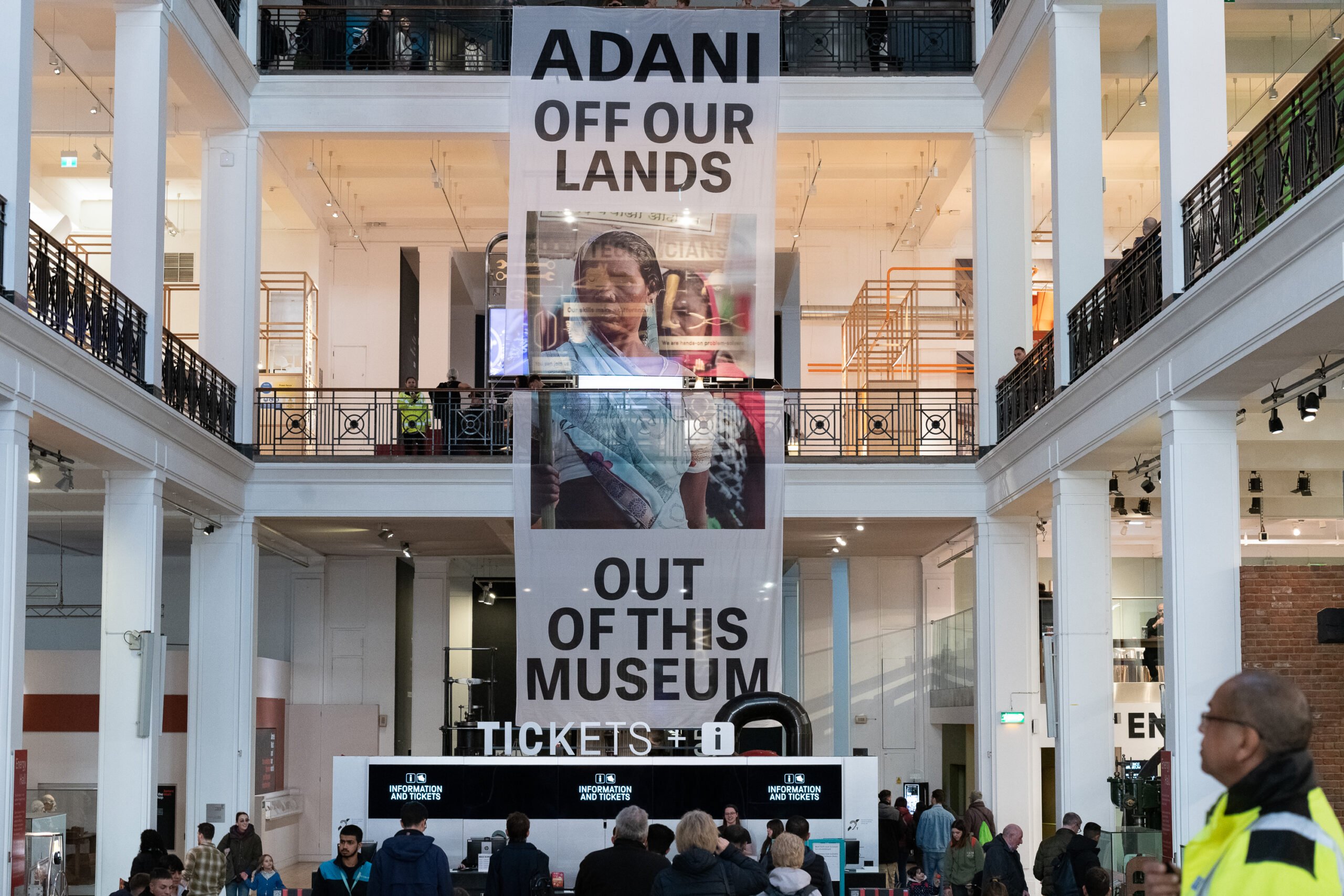
Photo: Ron Fassbender
Science Museum faces protests ahead of ‘climate gallery’ opening
The Science Museum has been criticsed for links with fossil fuel sponsors BP, Equinor and Adani.
Climate activists staged protests at London’s Science Museum twice last week ahead of the launch of the organisation's new green energy gallery, sponsored by Adani Green Energy, the renewables subsidiary of fossil fuels giant and the world's largest private coal mine developer Adani.
Protesters gathered outside a VIP launch event of Energy Revolution: The Adani Green Energy Gallery last Thursday (21 March) to demand the museum end its ties with fossil fuel sponsors BP, Equinor and Adani. During a second protest on Saturday (23 March), over 150 people chanted and staged a sit-in inside the museum.
The latter demonstration culminated with the display of a 12-metre banner spanning the full height of the museum’s Energy Hall reading ‘Adani off our lands and out of this museum' and featuring an image of indigenous Adivasi women in India.
READ MORE:
- Science Museum signs deal for new Saudi hub
- Science Museum used 'misleading' tool to justify big oil sponsorship
A spokesperson from Fossil Free Science Museum (FFSM) coalition said the protest was timed to coincide with a people’s assembly in India on resistance to the destruction of the Hasdeo Forest for the benefit of mining companies, including Adani.
Science Museum Group (SMG) says its new exhibition space will feature historical and contemporary objects that highlight “how we can journey towards a low-carbon world” and claims the gallery is only sponsored by Adani Green Energy.
However, activists from FFSM allege that SMG corresponded directly with Adani Group over the project. The research group Culture Unstained previously used Freedom of Information requests to reveal that the museum produced an internal due diligence report identifying serious ethical concerns regarding Adani Group.
“The education mandate of a public institution like the Science Museum cannot be emphasised enough,” said Lotika Singha from International Solidarity for Academic Freedom in India
“When the museum's Director approves funding by a global mining and extractive corporate giant, the Adani Group, after speedily burying the due diligence report establishing its well-known record of abusing the land rights of indigenous peoples in India and Australia, it raises concerns about the academic freedom of the students and public who trust the museum as a space to engage with indigenous people’s knowledges and practices around climate justice and ‘development’.”
In response to the protests Director and Chief Executive of the SMG told The Art Newspaper: “Our innovative new gallery will explore how we might achieve the urgent energy transition the world needs to see, a project made possible by generous sponsorship from Adani Green Energy, a major renewable energy business based in India whose huge population is expected to drive the biggest energy demand growth of any country in the world in the coming decades.”
Mounting criticism
SMG, which recently signed an agreement with the Ministry of Culture for the Kingdom of Saudi Arabia to create a "museums hub" in Riyadh, has faced increasing criticism for its links to energy corporations.
The latest demonstrations follow a protest held by Extinction Rebellion at an SMG panel debate on 1 February attended by activist Greta Thunberg.
Meanwhile, a group of scientists previously announced a boycott of the museum until a moratorium on fossil fuel funding was announced, while former trustees and a director resigned in protest.
Most UK cultural institutions have recently severed ties with fossil fuel sponsors.
An exception lies in the British Museum, which was forced to close during a protest on Sunday (24 March). The organisation came under fire for signing a 10-year partnership with BP last December after ending a 27-year relationship with the oil giant earlier in the year.
Organised by the UK-based collective Energy Embargo for Palestine, the protest highlighted the conflict in Gaza, noting that Israel has awarded six offshore gas exploration licenses since the war began to companies, including BP.
Join the Discussion
You must be logged in to post a comment.